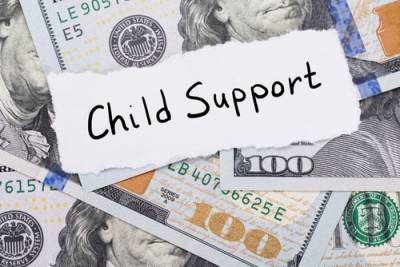Enforcing a Child Support Order
Posted on June 21, 2017 in Child Custody and Support
 Family courts do their best to be equitable in making decisions regarding child support, and they look to ensure that the amount ordered as payable is one that both parents can manage. Sometimes, however, payments are not made for a variety of reasons. Fortunately, there are safeguards in place that ensure that back child support or maintenance payments may be collected.
Family courts do their best to be equitable in making decisions regarding child support, and they look to ensure that the amount ordered as payable is one that both parents can manage. Sometimes, however, payments are not made for a variety of reasons. Fortunately, there are safeguards in place that ensure that back child support or maintenance payments may be collected.
Notices of Withholding Income for Support
If you are not receiving your child support payments, you may contact Illinois’s Division of Child Support Services, or you may involve the family court where your divorce was handled. Either way, it is incumbent upon you to ask for back child support. If you can back up your claim, the court will enter an arrearage against the parent owing support. Usually, when a Uniform Order of Child Support is ordered, a Notice to Withhold Income for Support is sent to the employer of the paying parent, advising them to withhold a certain amount and forward it to the state. If an arrearage occurs, a new Notice must be sent to let the employer know that more must be taken out to cover it.
The important thing to remember about Notices of Withholding is that they are used in cases of arrearage even if one was never sent at the conclusion of your divorce proceedings. They are used to garnish wages in the name of child support, and that can be done at any time as long as there is a valid Uniform Order on the record. If the paying parent is unemployed, a notice may be sent directly to the parent to advise them that other methods of payment will be sought—for example, intercepting any tax refunds the parent may be due.
Serious Cases
The other common way of collecting child support that is utilized in Illinois is via the courts, and filing a Petition to Show Cause. There is no legal presumption of malice, but if a paying parent misses a child support payment, the Petition to Show Cause can be filed to demand the parent prove that the nonpayment was not malicious. If the reason is valid, the court works with both parents to achieve compromise. If the reason is not valid, the delinquent parent may wind up in contempt of court. Actions such as suspension of one’s driving privileges or professional licenses may also occur.
If matters grow very serious—such as willful non-payment for more than six months or an arrearage amount of over $5,000—the Department of Child Support Services may take action under the Non-Support Payment Act. The severity of the prosecution will depend upon how much the parent owes and how low they have refused to pay. The rationale behind this punitive step is that if a Uniform Order of Support was drawn up at the time of the divorce, and it was not based on a default judgment - that is, a judgment where the paying parent was not present—then the paying parent had the opportunity to contest its terms if they were unfavorable. Since the terms are presumed to be favorable, the only reason one might have to not pay support is malice. A parent who owes back child support must prove otherwise.
Contact an Experienced Child Support Attorney
It is entirely understandable to want to receive what you are owed by law. If you are in a position where you are not receiving child support, we can help. Contact an experienced Kane County family lawyer to discuss your options for pursuing payments owed to you. Call 630-232-9700 for a confidential consultation at The Law Offices of Douglas B. Warlick & Associates today.
Source:
http://www.ilga.gov/legislation/ilcs/ilcs3.asp?ActID=2089&ChapterID=59







 Family courts do their best to be equitable in making decisions regarding
Family courts do their best to be equitable in making decisions regarding 